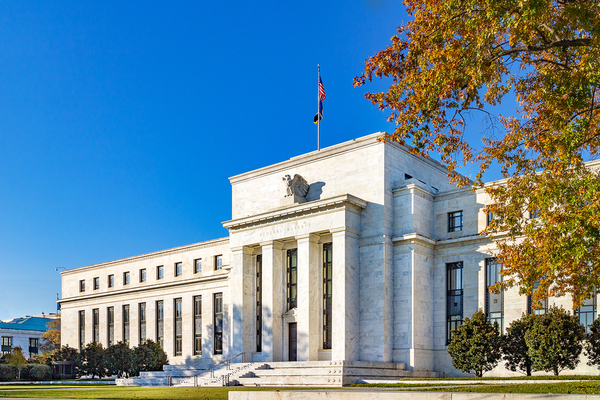View Sale Announcement Detail


Archived news
EXCERPT:
Lending to companies that are already overleveraged is risky business for lenders. But it's not the banks that are necessarily at risk, but nonbank finance companies.
 At a recent press conference, Fed Chairman Jerome Powell voiced concerns of a leveraged loan bubble, and the risk does not lie with banks, but with nonbank lenders.
At a recent press conference, Fed Chairman Jerome Powell voiced concerns of a leveraged loan bubble, and the risk does not lie with banks, but with nonbank lenders.
Are we in the midst of a leveraged loan bubble? Politicians seem to think so. And even though it could be true, it's not necessarily the big banks that are at risk.
Heavy scrutiny in the financial industry places stringent regulations on banks, and these institutions are well aware of their boundaries. And when it comes to lending, banks have a solid understanding of the expectations placed on them by the Federal Reserve in terms of lending to companies that are already heavily leveraged.
But such debt-heavy companies are typically served not by banks, but by nonbank lenders that do not have the same regulatory restrictions placed on them when it comes to lending.
If there is a risk of a leveraged loan bubble growing too fast and potentially bursting shortly, it's not the banks that are in the line of fire, but the nonbank sector.
 Lenders need to reassess their loan portfolios to ensure they're filled with less-risky assets to ward off any issues should a leveraged loan bubble continue to grow and eventually burst.
Lenders need to reassess their loan portfolios to ensure they're filled with less-risky assets to ward off any issues should a leveraged loan bubble continue to grow and eventually burst.
Fed Chairman Jerome Powell expressed these concerns at a recent news conference. Leveraged lending is increasingly becoming an issue of great concern, prompting Congress to examine the risks associated with adding more and more leveraged loan assets to the books. More specifically, leveraged lending could eventually lead to a swarm of over-leveraged companies defaulting should the economy suddenly plummet.
Powell noted that he's not necessarily concerned about banks' position in the leveraged loan realm, as today's banking system is now heavily regulated and not as vulnerable to lending losses. But it's the nonbanks that are more at risk, and with the ongoing explosion of non-lenders bursting on the scene, riskier lending has followed suit.
In fact, billions of dollars in loans have been accumulating among riskier borrowers who are simply adding more debt to their already-heavy debt loads. It's these types of borrowers who would likely be turned down by traditional banks, and therefore look to nonbanks to obtain the borrowed funds required to continue business operations.
Since the 2007-2008 financial debacle caused predominantly by the housing bubble and risky lending practices, traditional banks have retreated from riskier loans. And the stricter regulatory standards have put them in a position to be much more vigilant about the types of loans they provide and to whom.
Nonbank finance companies, on the other hand, are not subject to the same level of regulations and have been taking over the underbanked sector of the market. But while these lenders may be filling a void and serving a need, they're also placing themselves at risk.
Considering the position they've found themselves in, nonbank finance companies must take measures to protect themselves against heightened risk, and taking a close look at their loan portfolios is the first step. Identifying risky long-term assets and selling them off to acquire less risky, higher-performing short-term assets in their place can serve them well in strengthening their loan portfolios and protecting themselves.
The best way to approach this strategy is to team up with a seasoned loan sale advisor with plenty of experience in this realm. And Garnet Capital can help with that.
Sign up for our newsletter today.

